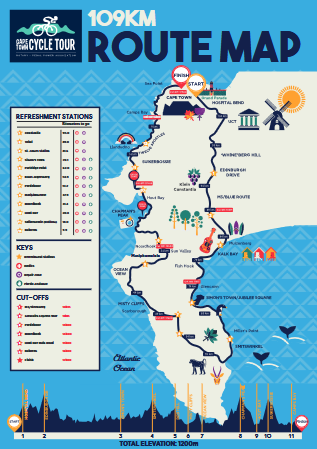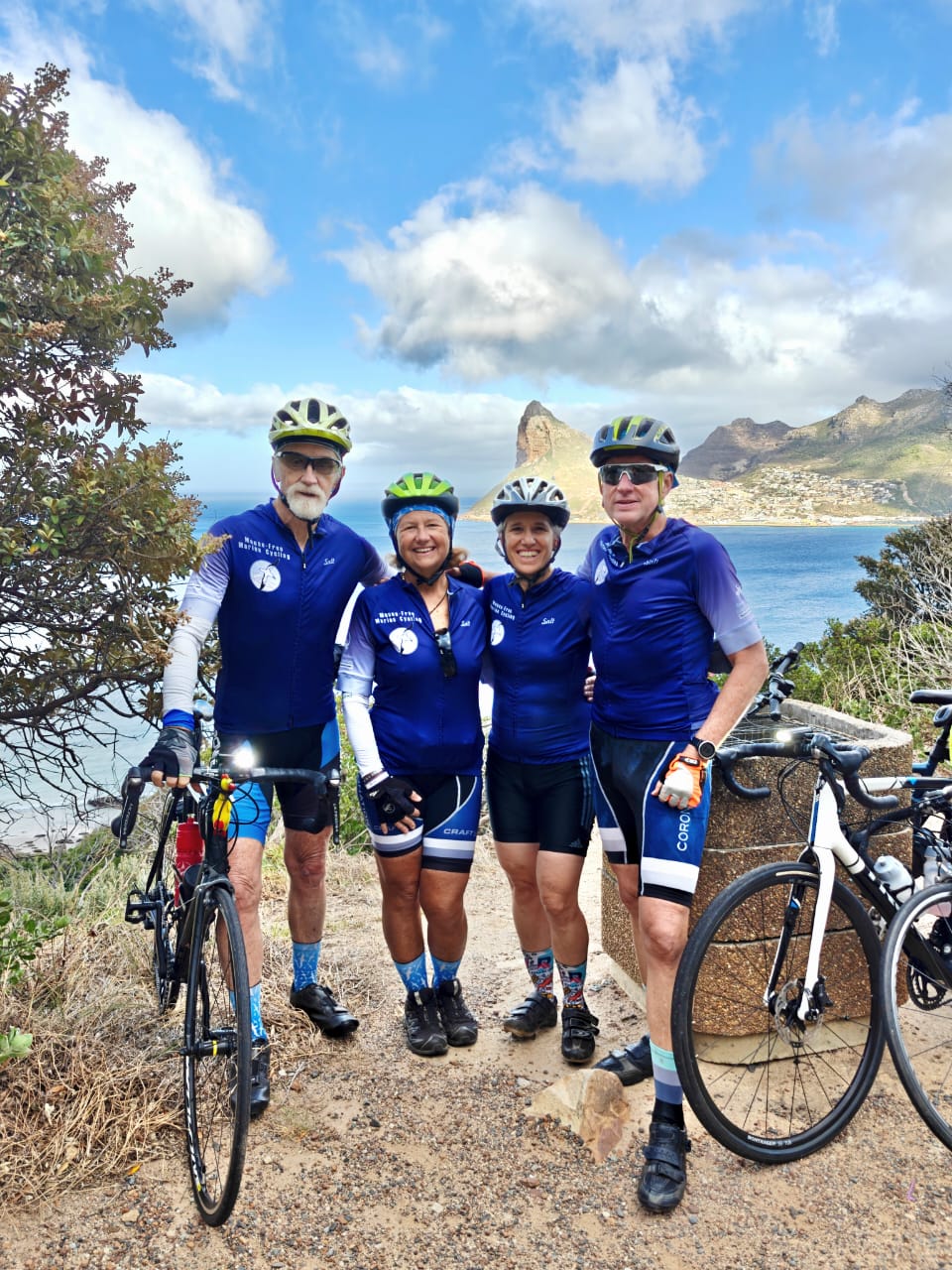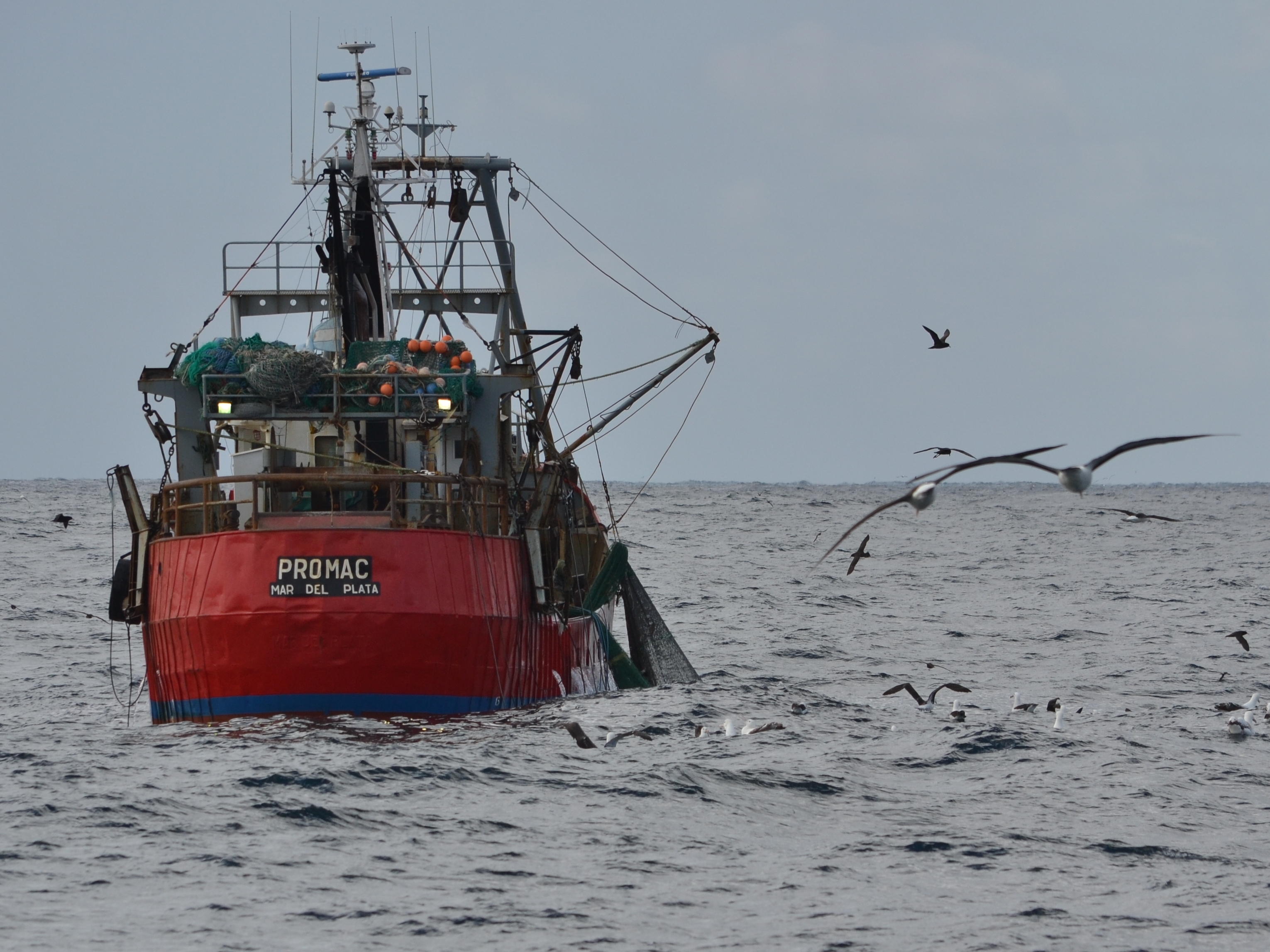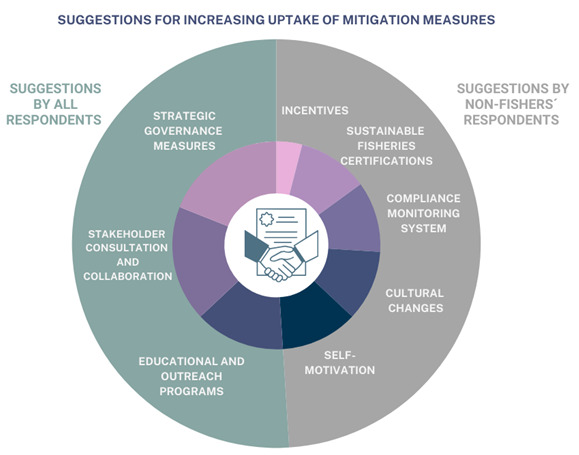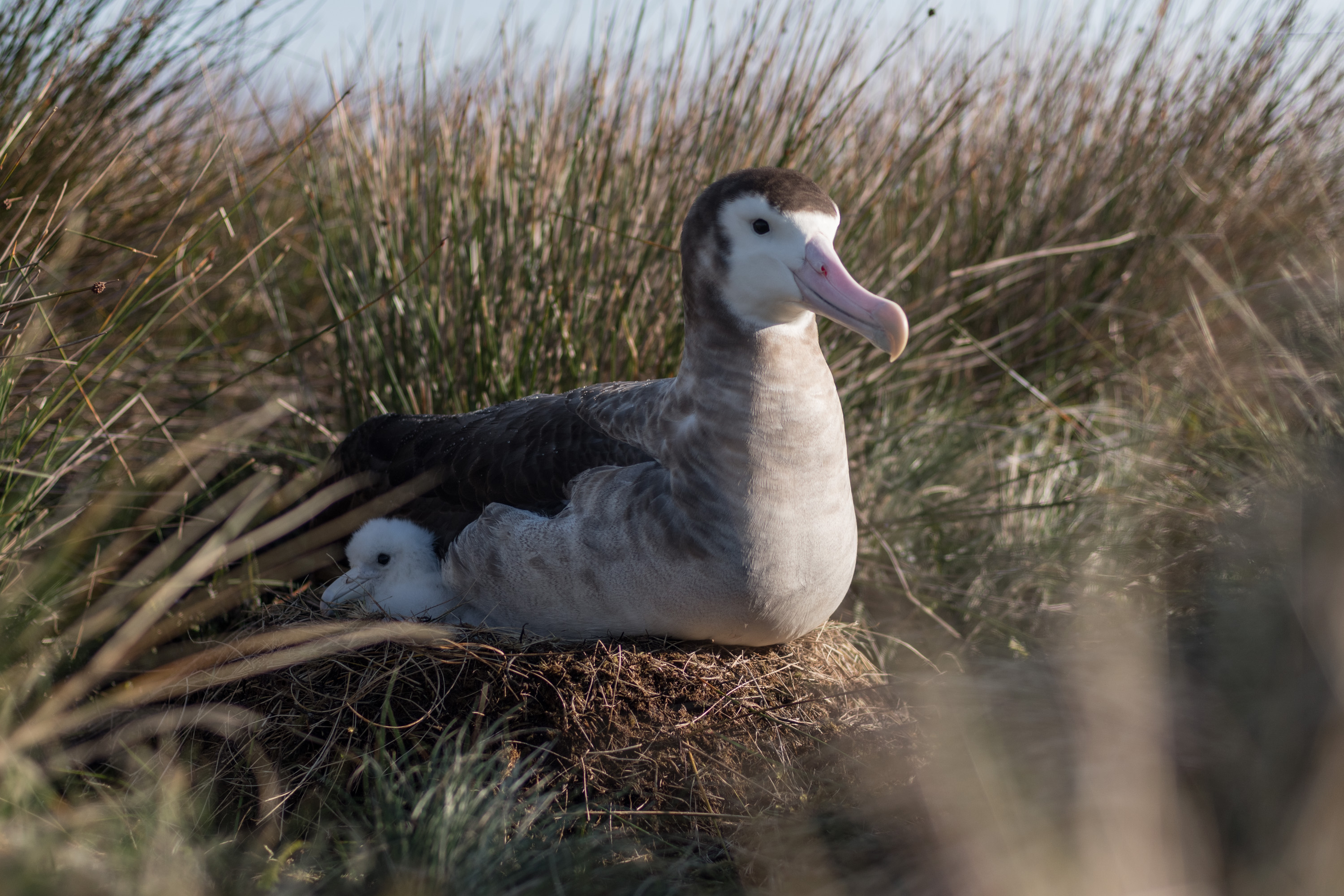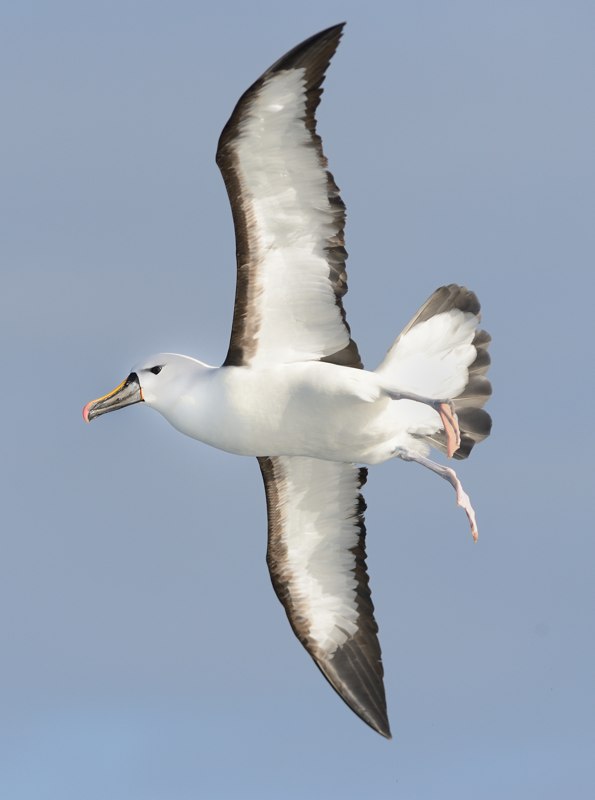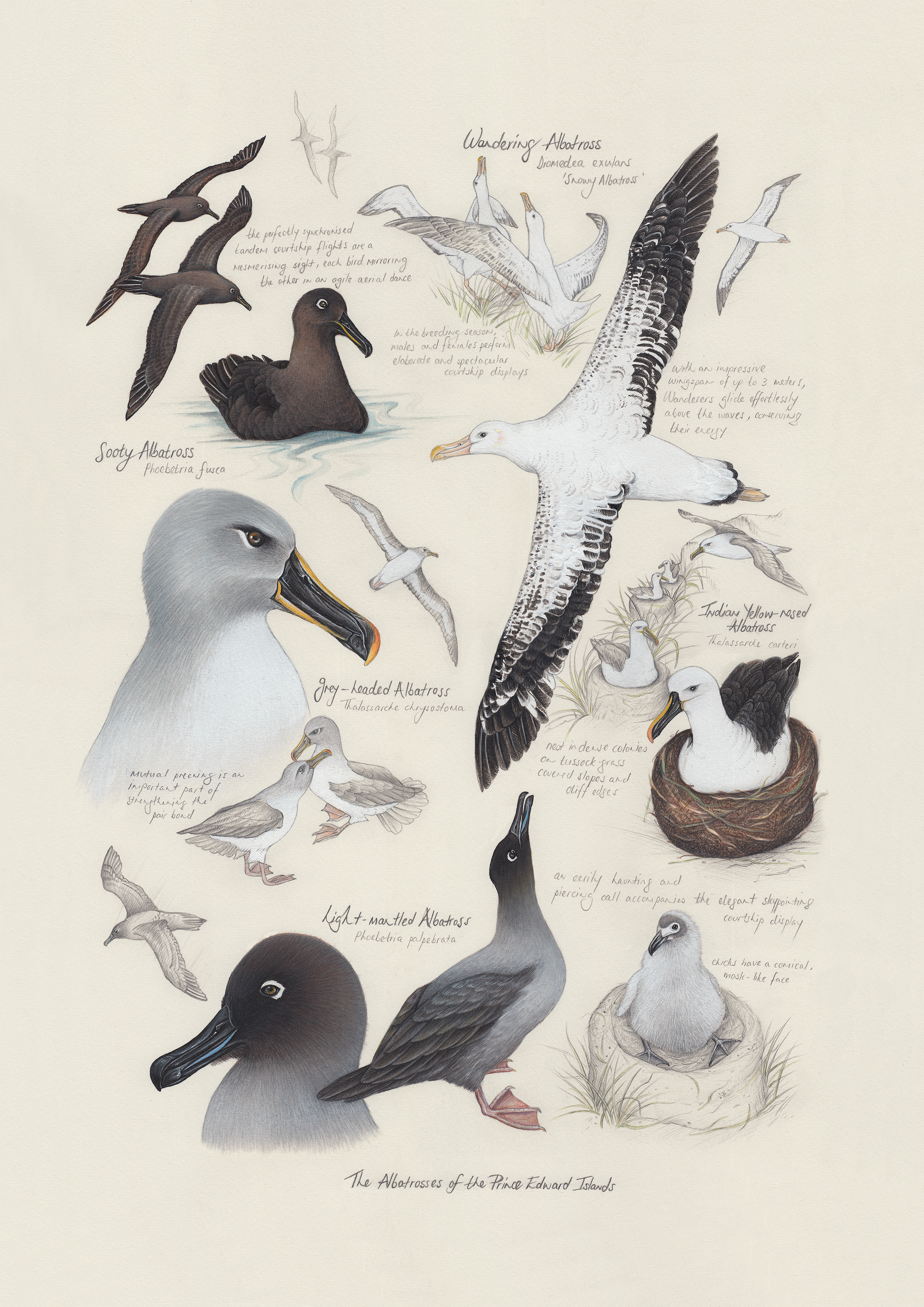
Leigh Wolfaardt’s The Albatrosses of the Prince Edward Islands, painted in gouache and graphite pencil, is now available for purchase as a limited edition giclée print
Leigh Wolfaardt is a South African artist with a strong interest in islands and their conservation. The wild and spectacular environments of islands and their wealth of animal life continue to be great sources of inspiration for her art. She is particularly passionate about seabirds, with a particular love for the majestic albatrosses, icons of the open ocean. Leigh has now made prints of her The Albatrosses of the Prince Edward Islands’ that depicts the islands’ five species available in support of the Saving Marion Island’s Seabirds. The Mouse-Free Marion (MFM) Project.
Leigh writes to the MFM Project:
“I was super delighted with the enthusiastic response that my painting ‘The Albatrosses of the Prince Edward Islands’ generated at the live auction that was held onboard the Flock to Marion AGAIN! 2025 voyage, organised by BirdLife South Africa. My painting was created specifically to generate funds for the Mouse-Free Marion Project, which is aiming to eradicate invasive mice from Marion Island to protect its globally important and remarkable seabirds. To raise funds for this vital project, my painting has now found a new home, and I am making available limited edition giclée prints of the original artwork. 50% of all proceeds generated from the sale of the prints will be donated to the project. If you are interested in purchasing one of these prints and supporting the project to rid the island of the devastating effects of the mice on these beautiful birds, visit my website here.”
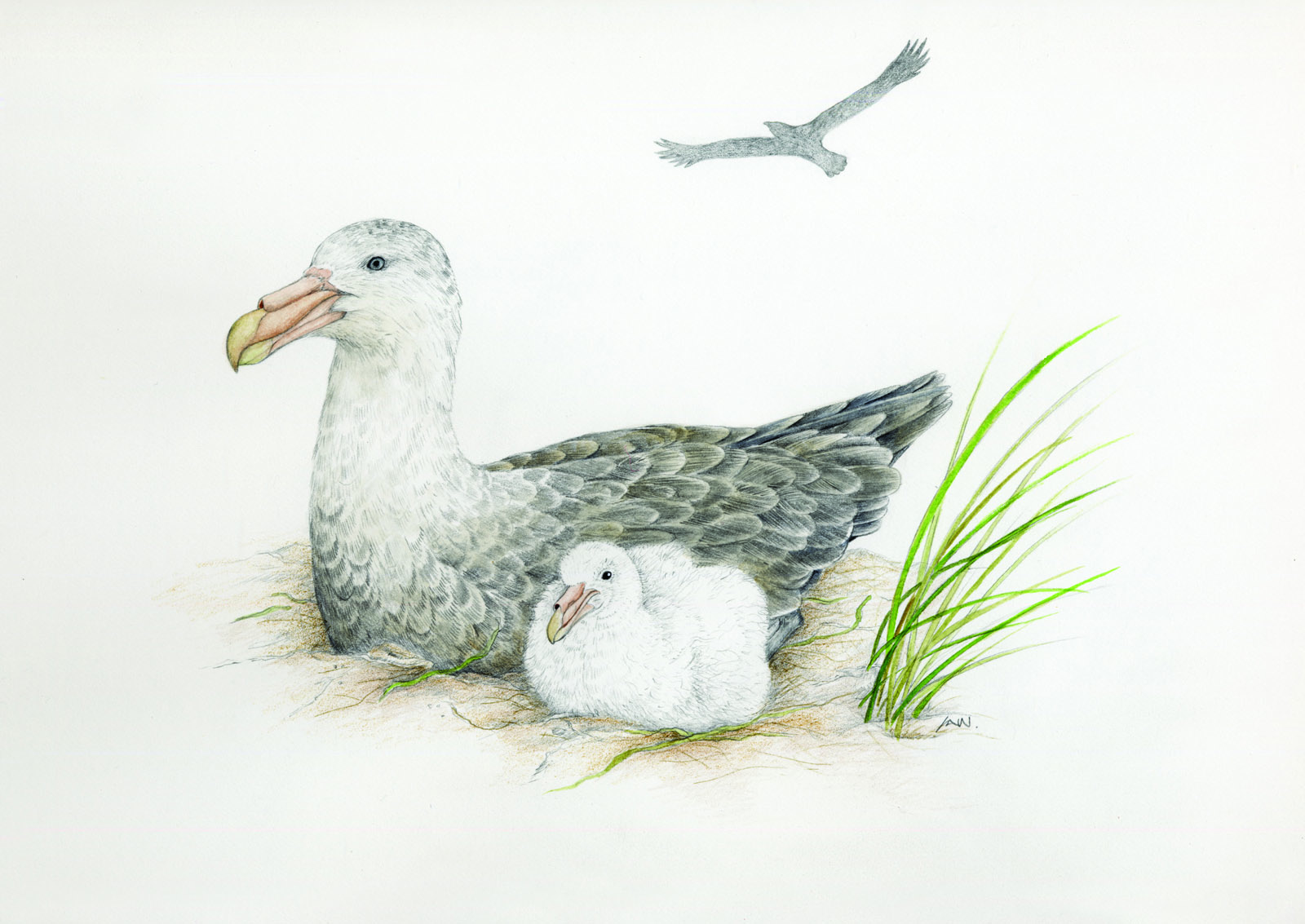
Southern Giant Petrels are also at risk to mice on Marion Island, artwork by Leigh Wolfaardt
Leigh Wolfaardt is the partner of Anton Wolfaardt, the Mouse-Free Marion Project Manager. Together they have lived and conducted conservation research on seabirds on South Africa’s Dassen Island, in the Falkland Islands and on South Georgia (Islas Georgias del Sur)*. Leigh and Anton now live in a Victorian house150 km from Cape Town in the heritage village of Stanford, set in a tapestry of farmland, fynbos and mountains along the famed Cape Whale Coast of South Africa.
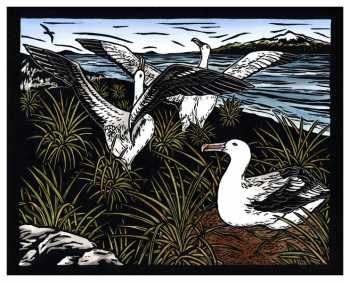
Wandering Albatrosses displaying and nesting on Prion Island in the South Atlantic, linocut by Leigh Wolfaardt
On a personal note, the ACAP Emeritus Information Officer is proud to have print 1/500, signed for him by Leigh and presented by the MFM Project, hanging in pride of place on the ‘albatross wall’ in his Rondebosch home.
John Cooper, Emeritus Information Officer, Agreement on the Conservation of Albatrosses and Petrels,06 March 2025
*A dispute exists between the Governments of Argentina and the United Kingdom of Great Britain and Northern Ireland concerning sovereignty over the Falkland Islands (Islas Malvinas), South Georgia and the South Sandwich Islands (Islas Georgias del Sur y Islas Sandwich del Sur) and the surrounding maritime areas.

 English
English  Français
Français  Español
Español 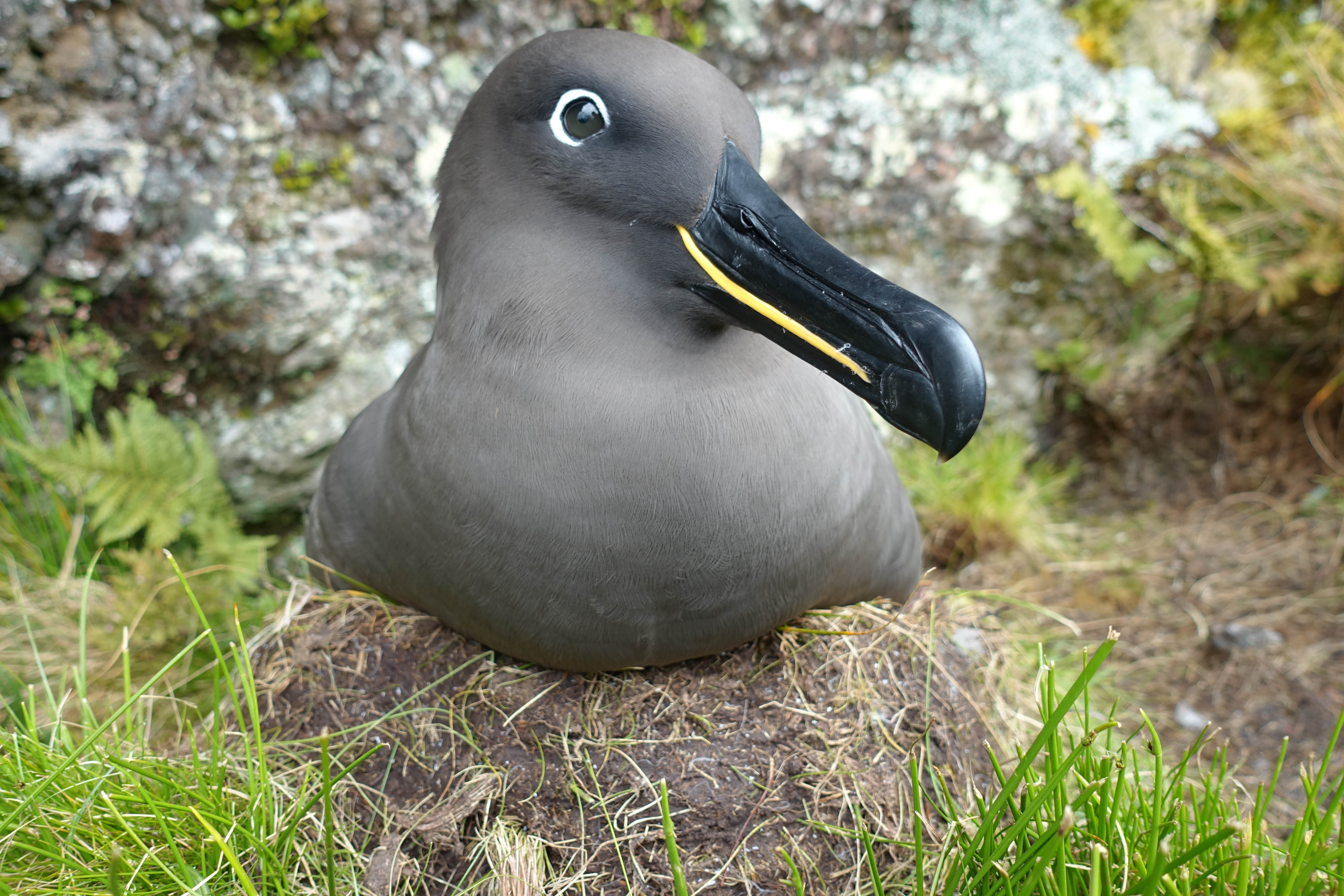
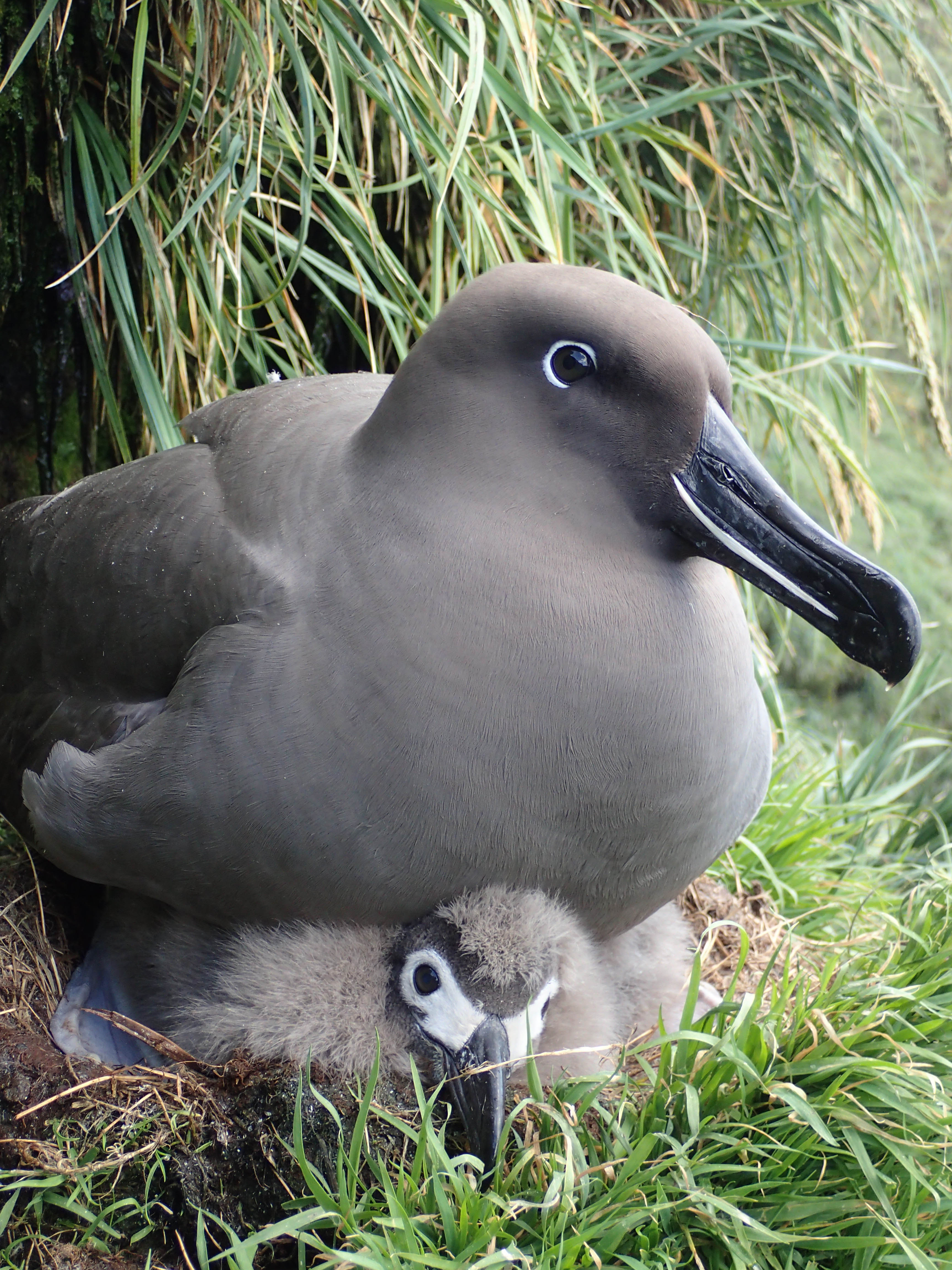
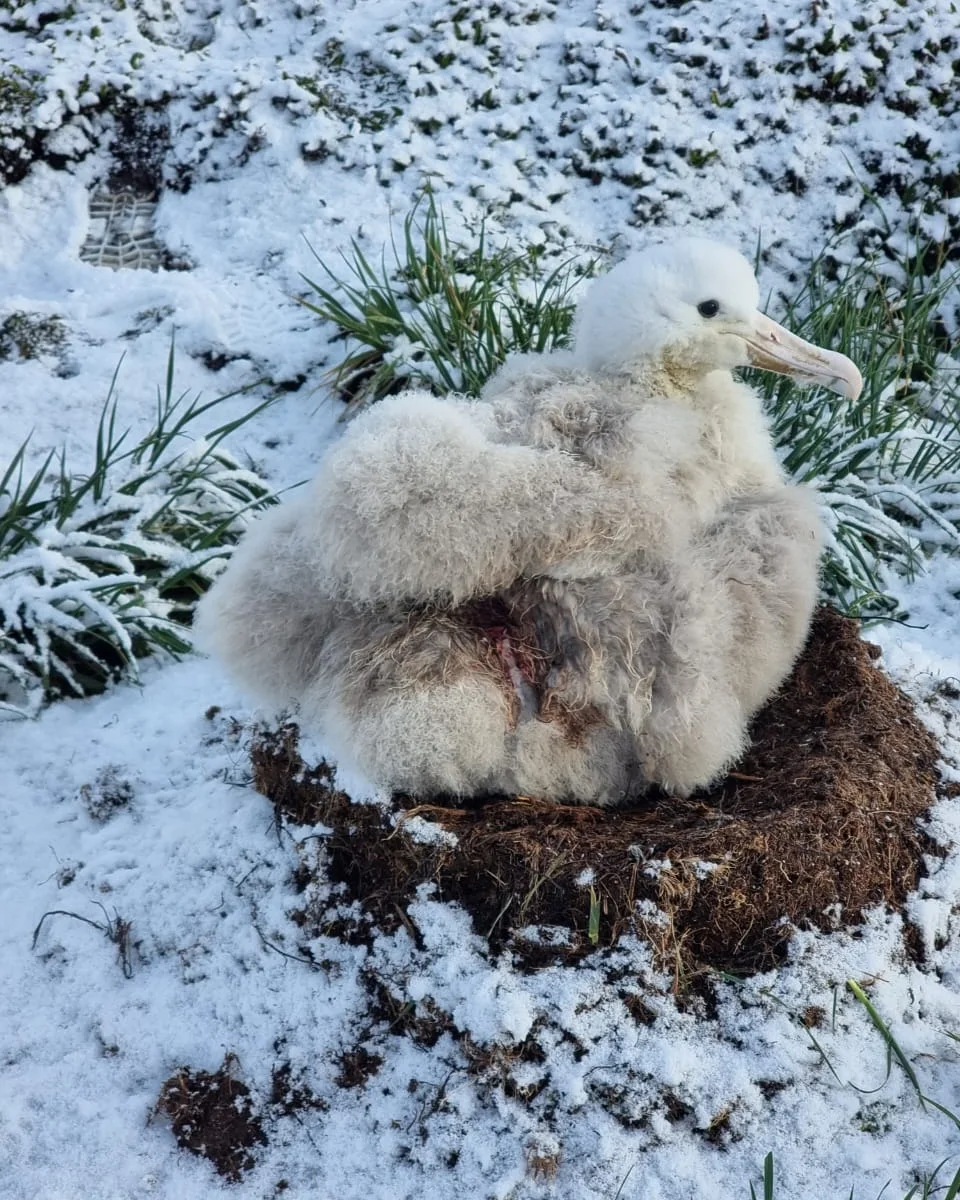 This wounded Wandering Albatross chick did not survive nocturnal attacks by introduced House Mice on Marion Island, photograph by Michelle Risi, June 2023
This wounded Wandering Albatross chick did not survive nocturnal attacks by introduced House Mice on Marion Island, photograph by Michelle Risi, June 2023